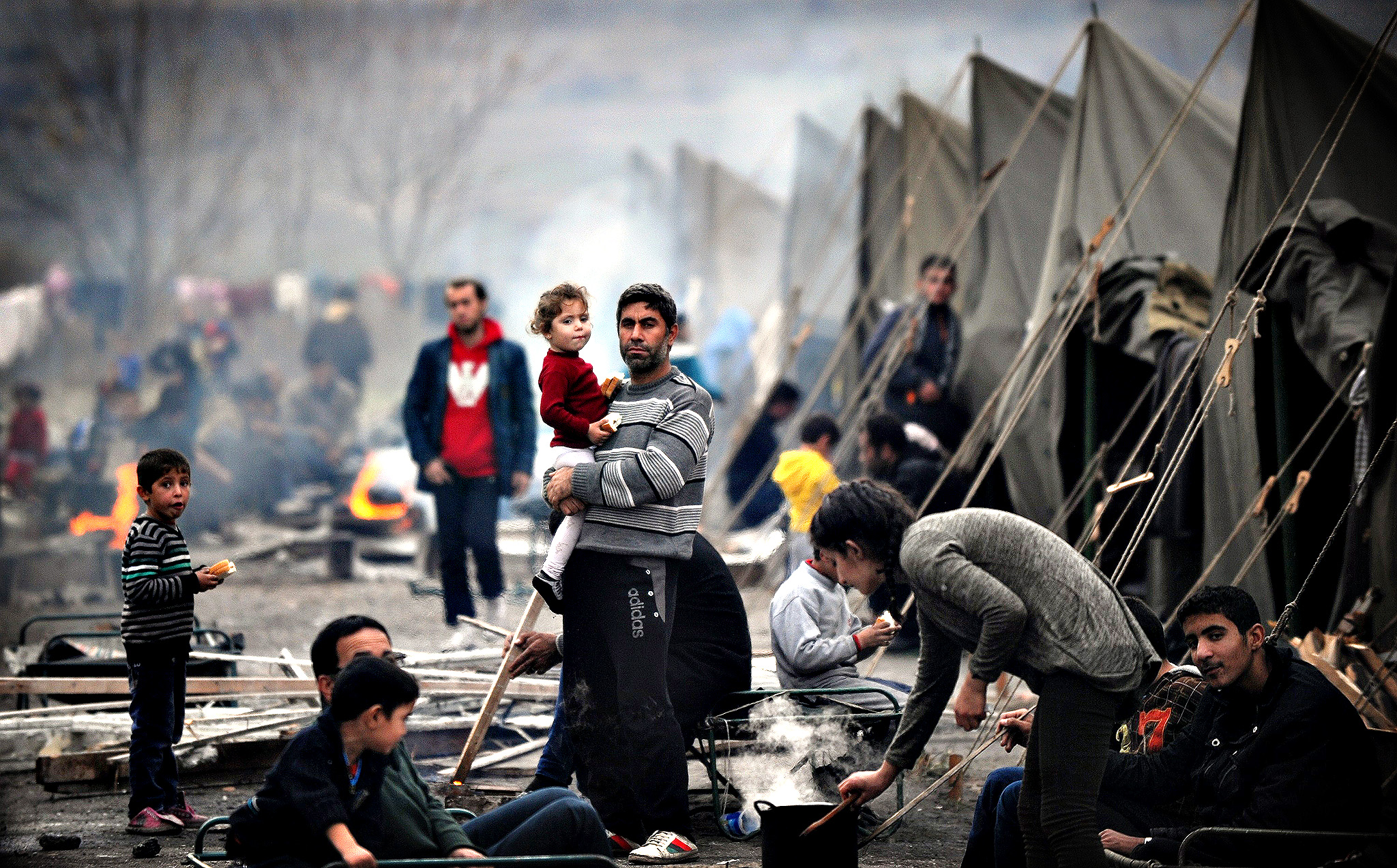'We Are Like The Living Dead': Refugees Who Fled War Torn Syria Want To Go Back
Syrian refugees

NEW DELHI: This year, the UN said that more than four million Syrians have fled the country’s civil war, which has damaged much of the country's infrastructure and killed more than 220,000 people. The war, which is now in its fourth year, has no solution in sight, with militant groups like that Islamic State and countries determined to fight them led by the US now in the fray.
The millions of people who have fled Syria have contributed to a global refugee crisis, which came to the headlines of harrowing pictures of the death of a Syrian toddler, Aylan Kurdi, whose lifeless body washed ashore a Turkish beach.
The crisis has divided the so-called developed world, with immigration becoming a major flagpoint with right wing political parties emboldened by the anti-immigration sentiment. Many others, however, point out that the circumstances must be so dire, that millions are willing to risk their lives to travel the high seas with little guarantee of reaching a safe destination.
The tragedy is that for those who make it, life is usually centred on refugee camps, where conditions are miserable.
A story in the Global Post follows Khaled al-Nibeeti and his family, who fled their home for the first time four years ago when fighting broke out in Homs.
They traveled to Palmyra, then to the desert nearby. When airstrikes there made them too afraid to light their tent at night they left Syria altogether, spending their last money on checkpoint taxes and a rented car to reach Jordan.
“In Jordan, they moved from Zaatari refugee camp to the overcrowded city of Mafraq, eventually finding safety in Zaatari village, six miles from the Syrian border. They stayed there for a year and a half.
This week, they’ll travel again. But at a time when hundreds of thousands of refugees are making their way to Europe, this family is doing the unthinkable: returning to the war-ravaged country they once fled.
“I’d prefer to die in Syria,” Khaled al-Nibeeti told GlobalPost, rocking his 1-year-old son Mohammed to a fitful sleep. The baby has been ill for seven days, but the family can’t afford to pay for transport to see a doctor or get medicine. “It’s better for me to die in Syria than live here, when life in Jordan is so hard.””
Khaled and his family are not alone. According to the United Nations, more than 100 Syrians have been leaving Jordan for Syria every day in recent months. The poverty and lack of resources that characterise life in refugee camps is driving people like Khaled back to Syria -- where war and a despairing humanitarian situation await them.
The crisis that’s driving thousands of Syrian refugees to return home is perhaps evident in the World Food Program’s rapidly shrinking allowance for refugees. Earlier, the WHO allowance for refugees from Syria in Jordan was 24 Jordanian dinars (about $34) per person per month to buy food and essential supplies. In September this year, the allowance fell to just 10 dinars for the most vulnerable, and was cut entirely for 229,000 people.
If life in the camps seems terrible, life outside of it is perhaps even worse for Syrian refugees. With costs of living thrown into the fray, many struggle to make ends meet. An estimated 86 percent of urban Syrian refugees are living below the poverty line.
“What people don’t always understand is that the World Food Program cuts coincided with cuts in other organizations — smaller NGOS that have been helping the refugees out with rent and so on,” Shada Moghraby, a spokesperson for the WFP told Global Post. “Needless to say, with the impact of the cuts we’ve seen families resorting to emergency coping mechanisms. We’ve seen early childhood marriage, begging.”
Global Post quoted another Syrian refugee, Um Faisal, who too is looking for a way out of Jordan. “The life here is so difficult. We look poverty in the face. There’s so many problems. We don’t have any work, no support. We can’t produce anything. We don’t have anything here,” she says. “We are like the living dead.”
Faisal’s vague plan is to head to Reyhanli, close to the Syrian border. It would be better to stay in the desert, she says, than come back to Jordan.
How desperate the situation is reflected by the fact that in a survey by the UN of Syrian refugees in Jordan, 49 percent said they were considering leaving, with the majority explaining their decision to leave saying that they had no means to survive.
The clincher, however, is evinced in Khaled’s wife’s statement: “There’s no future in Syria, in Syria there is only death… But it’s better to die in Syria than to live here in the dirt.”



